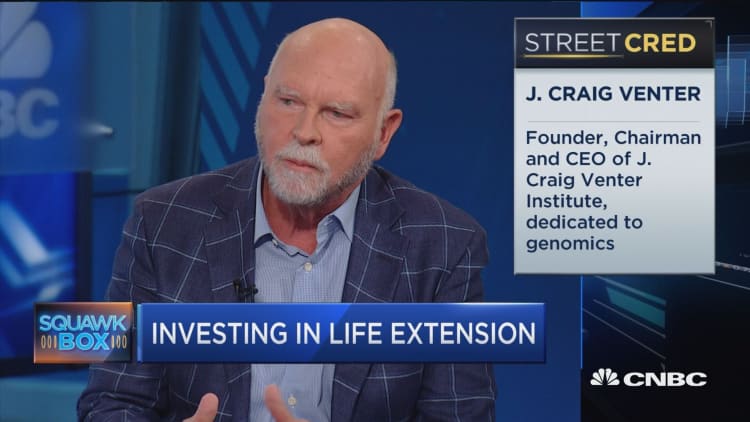
A biotech firm hopes that DNA will hold the answer to fighting that mother of diseases: aging.
Human Longevity, Inc., says it can sequence a person's DNA and combine it with other clinical tests to identify how long someone will live, and what can be done to extend a patient's life, even before a budding disease, such as cancer, shows symptoms.
The La Jolla, California-based company is compiling a massive database of DNA and clinical information to find ways to extend the human lifespan, and runs a clinic where $25,000 will get a full day of tests and a complete profile totaling about one petabyte of medical information.
"It is the most comprehensive physical you can get," said company co-founder J. Craig Venter, on "Squawk Box." The company looks to find actionable solutions for any medical issues that arise.
Venter said seemingly healthy patients getting the tests have discovered cancer in its earliest stages — when the disease is usually most treatable. The tests are also capable of identifying the risks of getting certain diseases later in life.
"We are learning that we are a DNA software driven species," Venter said, "and that your software determines everything about your life, including how long you are going to live."
But DNA can also give clues about how diseases might be treated. The disease-producing genetic quirks its systems identify can be used as "pharmaceutical targets, so that people with those genetic changes don't die," Venter said.
The information is analyzed by artificial intelligence "in a way that no human doctor could do," said company co-founder Peter Diamandis in the segment.
At $25,000, it is not exactly cheap. "But we have a version of it we think we can do for a few thousand dollars, because the two most important aspects of the treatment are the sequencing and the MRI imaging," he said.
Indeed, genomic sequencing may soon cost next to nothing, Venter said.
Venter led one of the two teams of scientists who first sequenced the human genome. Back then it cost about $100 million to sequence an entire human genome, today Venter can do it for less than $1,500.


